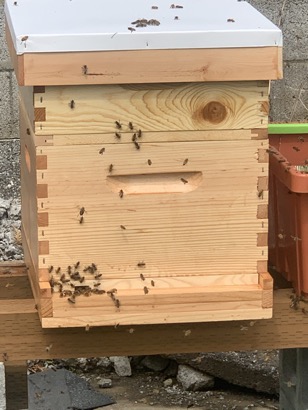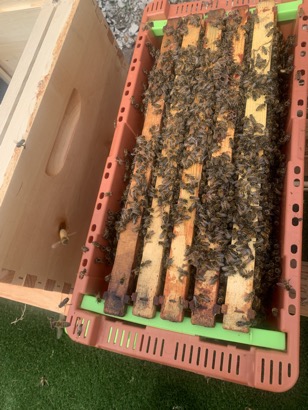Bees
23/04/23 02:38

I come from a time when pastors made calls to the homes of church members. Perhaps I am old school and my style of ministry is a relic of the past, but I am grateful that I was able to serve when I did and in the way that I was able. Every congregation has difficult relationships. I have met personalities who were a challenge for me to serve. I often thought of a very important piece of advice that a mentor once told me: “When you find someone in your congregation that you don’t like, you should pray for that person every day, if for no other reason that you want them to be healthy and have a long life so that you don’t have to be the one to officiate at their funeral.” The statement was made tongue-in-cheek, but there is a distinct advantage to the discipline of praying daily for those with whom relationships are challenging. Simply making time to think of that person each day will help to increase understanding and appreciation.

One of the thousand interests he had was bee keeping. He kept his bees at a remote location and I never visited his hives, but I enjoyed their honey. He would donate cases of pint and quart jars of honey to the church rummage sale, and I would try to be among the first customers so I could purchase up a couple of quarts at each sale. I really enjoyed it when the talked about bee keeping. “When you first look at bees,” he said, “You are struck with individuals. The one flying around your face distracts you. The ones on the ground that can travel up your pants leg definitely get your attention. But to care for bees, you have to learn to think of the colony. Bees don’t reproduce as individuals, though individuals eggs are continually being laid in an active colony. Bees reproduce as colonies. They expand their numbers by making new colonies.”
The way in which he talked about his bees made me want to become a bee keeper. Limits of my time and space didn’t allow me to get into the hobby during my active career, but I was moved by his love of keeping bees. He wasn’t the only bee keeping friend I made during my time as a pastor. I had bee stories from the first parish I served and also became friends with another bee keeper in that same congregation.
After I retired, it took me a while to get settled. Much of the first two years after our retirement was invested in finding a new home, sorting possessions, and making a move. We moved a second time just over a year after our initial move, this time from a house we had leased to one we are purchasing. Now that we are settled just down the road from our son’s farm, the timing is right for bees. A year ago I completed a basic beekeeping course offered by a local bee keepers association and I became certified by the state agricultural commission as a bee keeper. Although the next step is to establish colonies and keep bees for a year before taking the advance courses, I delayed for a year to study, observe, and continue learning. Early this spring, however, the timing was right and I purchased my first bee hives and ordered bees for delivery.
Yesterday was the day I got my bees. Two nuclear colonies, each with 5 frames of bees, were transported in plastic containers. I picked up the containers and brought the bees to the farm where I allowed them to acclimate for a while before transferring the frames from the transfer boxes to the new hives. The hives are bigger than the boxes and have additional frames for the bees to spread out and create more brood space. After they settle in, I will add a second layer of brood space and eventually honey supers to collect honey.
It is an exciting adventure and the adventure is just beginning. I am grateful for the friendship that aimed me in this direction. Knowing people who have been successful at retirement has become as important as other friendships in guiding my life. I’ll continue to form friendships within the church.
